Recherche avancée

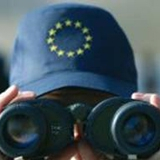 |
Les points de blocage lancinants de l’Europe de la défense
Note IVERIS
14 déc, 2016
"Jamais depuis le lancement de la défense européenne les circonstances ne lui ont été aussi favorables qu’aujourd’hui. Le vote du Brexit a mis sur la touche les éternels poseurs de veto britanniques, et l’élection de Donald Trump à la présidence des Etats-Unis a brusquement mis en lumière les incertitudes liées à une posture de dépendance et de suivisme. Qui plus est, ces deux événements majeurs surviennent dans un contexte où déjà tout plaidait pour une véritable prise en compte des enjeux de sécurité et de défense par les Européens."
|
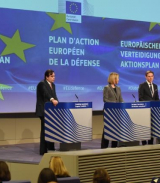 |
La Commission change, timidement, de logiciel sur la défense
Note IVERIS
03 déc, 2016
Avec son Plan d’action européen de la défense, la Commission de Bruxelles amorce un véritable changement de paradigme, à triple titre. La grande nouveauté, c’est la mise à disposition de financements communautaires pour soutenir la recherche et des programmes militaires. Qui plus est, sur deux autres sujets controversés, atlantisme vs. autonomie et ouverture sans limites vs. politique industrielle, elle opère des infléchissements dans un sens positif: vers (un peu) plus d’autonomie et (un peu) plus de politique. Mais elle refuse toujours obstinément d’aller au bout de sa logique.
|
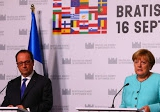 |
Défense européenne : « c’est parti » ?
Note IVERIS
20 sept, 2016
Interrogé le jour du sommet informel de l’UE à Bratislava, le 16 septembre, le ministre des affaires étrangères français assure : « on est en train d’avancer sur une politique commune de défense ». A la remarque sceptique qui s’en est suivie pour noter qu’il y a maintenant vingt ans que l’on en parle, de cette Europe de la défense, Jean-Marc Ayrault répond, apparemment sûr de lui : « Oui, mais ça y est, c’est parti ». Que son optimisme soit fondé ou pas, une chose est certaine : la défense européenne n’a jamais bénéficié d’une constellation aussi favorable que ces jours-ci.
|
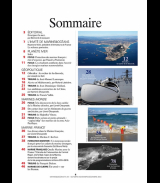 |
Les forces navales européennes, entre éclipse et dépendance ?
Marine&Océans n°241, automne 2013
22 oct, 2013
Le think-tank néo-conservateur American Enterprise Institute vient de publier un rapport particulièrement dense (1) analysant l’évolution des principales marines européennes, sous le titre « L’OTAN en mer : tendances concernant la puissance navale des alliés ». Ses conclusions sont limpides : les marines française, britannique, espagnole et italienne (l’Allemagne étant considérée comme un cas à part) sont toutes confrontées à cet exercice délicat qui consiste à réduire leur format tout en essayant de préserver, dans la mesure du possible, une certaine polyvalence.
|
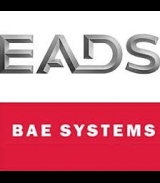 |
Les politiques d’armement en Europe à travers l’exemple de l’affaire BAE Systems-EADS
Défense & Stratégie n°33, automne 2012
15 nov, 2012
La tentative de fusion entre British Aerospace System (BAESystems)[1] et European Aeronautic Defence and Space Company (EADS)[2] a échoué malgré les louanges de la presse et en dépit du soutien que lui apportaient, sous le double slogan de « l’Europe » et de « l’efficacité/rentabilité », à la fois les politiques et le monde des affaires. Cet échec fut-il inéluctable ou le fruit d’un heureux concours de circonstances ? Une chose est certaine : qu’il s’agisse de ses acteurs, de son ambition ou de sa méthode, derrière la prétendue logique d’une telle fusion, transparaissent de toutes autres considérations.
|
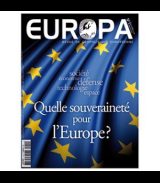 |
Autonomie ou assujettissement : la dimension militaire de l'impératif de souveraineté européenne
Europa, n°1, novembre 2009
15 nov, 2009
Aussi complexe que puisse paraître le sujet indiqué dans le titre, le point de départ de l’analyse peut être réduit à trois constats simples. Dès qu’il s’agit de souveraineté, nos rapports avec l’Amérique sont au cœur du problème. Or, les relations transatlantiques ont pour caractéristique fondamentale la dépendance européenne. Or, l’indépendance est la condition sine qua non de la crédibilité et du libre-arbitre ou, en d’autres termes, de l’existence même au sens géopolitique.
|
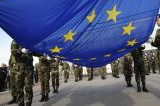 |
Bilan 2008 de la politique de sécurité et de défense de l’Union européenne
Défense & Stratégie n°25, hiver 2008
31 déc, 2008
L’année 2008 fut celle d’un triple anniversaire et d’une double illusion en matière de défense européenne. Il y a quinze ans, l’entrée en vigueur du traité de Maastricht marque le lancement officiel de la PESC (politique étrangère et de sécurité commune), assortie de la perspective d’une éventuelle future composante défense.
|
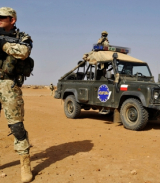 |
Bilan 2007 de la politique de sécurité et de défense de l’Union européenne
Défense & Stratégie n°22, janvier 2008
20 févr, 2008
Le petit tour d’horizon qui suit se propose de résumer les principaux développements de l’année 2007 en matière de Défense européenne. Pour ce faire, deux remarques préliminaires s’imposent. La première est terminologique ; elle concerne la dénomination PESD (politique européenne de sécurité et de défense) utilisée jusqu’à aujourd’hui, y compris dans cet article. Elle deviendra, une fois le nouveau traité ratifié, la PSDC (politique de sécurité et de défense commune). La deuxième remarque consiste à souligner que les développements et les débats au cours de l’année 2007 continuent à graviter autour du concept le plus controversé de la Défense européenne, à savoir le terme « d’autonomie ». |
 |
Lancement du livre Pour une Europe européenne. Une avant-garde pour sortir de l’impasse
Librairie Kléber, Strasbourg
06 nov, 2007
Le 6 novembre à la Librairie Kléber à Strasbourg eut lieu le lancement du livre Pour une Europe européenne. Une avant-garde pour sortir de l’impasse sous l’égide du Forum Carolus."Cet événement a été l’occasion de mener un débat autour de l’impératif d’une relance de la construction européenne par la création d’une avant-garde sur la base d’un « noyau dur » franco-allemand. Cette démarche est fondamentale pour ne pas aboutir à une impasse et relever le défi des alliances stratégiques permettant à l’Europe de renforcer sa souveraineté."
|
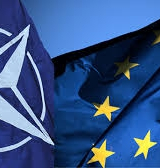 |
Le syndrome UE-OTAN: coup de projecteur sur les réalités transatlantiques
Journal of Contemporary European Research Vol3 I2
21 sept, 2007
Contrairement aux deux courants dominants, quoique diamétralement opposés, des pronostics qui furent très à la mode il y a quelques années, il apparaît de plus en plus clairement que les casse-tête liés à la problématique UE-OTAN sont appelés à durer. Ceux qui, au vu des difficultés initiales à établir des relations mutuellement acceptables entre les deux organisations, parlaient de « maladies de jeunesse » susceptibles de céder la place, avec le temps, à une insertion harmonieuse du nouveau-né « PESD » (politique européenne de sécurité et de défense) dans le système atlantique, ont eu tout aussi tort que ceux qui y voyait encore une nouvelle occasion pour sonner le glas de l’Alliance atlantique. Hélas, pour l’heure et dans un avenir prévisible, aucun des deux scénarios ne semble près de se réaliser.
|
 |
Convergences et collisions euro-américaines (revue de livre)
La Lettre Sentinel n°46, juin 2007
28 juin, 2007
Un coup de projecteur dans les coulisses de l’activisme (public-privé) américain à l’Union européenne, voilà ce que nous propose Florence Autret dans son dernier ouvrage. Et elle tient sa promesse. L’éclairage qu’elle apporte est impitoyable : non pas tant pour ceux qui agissent pour promouvoir, certes parfois un tantinet trop brutalement, les intérêts particuliers ou collectifs qu’ils représentent, mais pour ceux qui se contentent de subir – au risque de compromettre, pour ne pas dire trahir, les intérêts qu’ils seraient censés, eux, défendre et représenter.
|
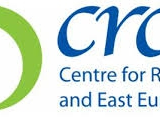 |
L'impact de l'adhésion à l'UE sur la politique étrangère
University of Glasgow CRCEES Research Forum
11 mai, 2007
Forum annuel de recherche CRCEES (Centre for Russian, Central and East European Studies) Intervention sur l'impact de l'adhésion à l'UE sur la politique étrangère des pays d'Europe centrale et orientale.
|
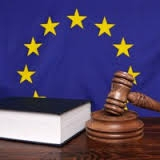 |
Article 296: ami ou ennemi?
EuroFuture Magazine, Winter 2006
01 janv, 2007
Le secteur de l'armement est le champ stratégique par excellence, que ce soit en termes géopolitiques, économiques ou technologiques. Du fait de la coïncidence entre les questions les plus abstraites liées à la souveraineté et la nature la plus tangible des produits (origine, composition, conception), les politiques poursuivies dans ce domaine sont particulièrement indicatives de, et déterminantes pour, la direction que l'Europe est sur le point de prendre.
|
 |
L'autonomie européenne entre rhétorique et réalités
La Lettre Sentinel n°41-42, octobre-novembre 2006
30 nov, 2006
Pour ce qui est du choix systématiquement occulté entre dépendance ou indépendance pour l'Europe, dans les textes, tout semble clair comme de l’eau de roche. Au moment du lancement de la PESD (politique européenne de sécurité et de défense), en juin 1999 à Cologne, la déclaration des Quinze stipule d’emblée l’exigence d’autonomie et de crédibilité des moyens de l’Union. Ce qui s’inscrit parfaitement dans les objectifs déclarés à l’article 11 du Traité sur l’Union européenne, notamment « la sauvegarde des valeurs communes, des intérêts fondamentaux, de l’indépendance et de l’intégrité » de l’UE. Toutefois, non seulement nous sommes toujours en attente pour voir quand ces belles paroles seront-elles traduites dans les actes, mais la question même de savoir si elles devraient l’être un jour reste objet de débat.
|
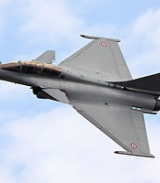 |
L'article 296 du TCE : obstacle ou garde-fou ?
Défense & Stratégie n°18, octobre 2006
31 oct, 2006
Assiégé de toutes parts, l’article 296 (ex-article 223) du traité instituant la Communauté européenne apparaît pour certains comme un anachronisme. En établissant une dérogation générale au droit communautaire dans le domaine de la production et du commerce du matériel militaire, il serait l’incarnation même d’un « protectionnisme » hideux, rétrograde, anti-marché et anti-européen.
|
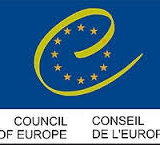 |
Les outils de l’indépendance de l’Europe
Colloque à Strasbourg, au Conseil de l'Europe
05 oct, 2006
Pour ce qui est du choix systématiquement occulté entre dépendance ou indépendance européennes, dans les textes, tout semble clair comme de l’eau de roche. Au moment du lancement de la PESD (politique européenne de sécurité et de défense), en juin 1999 à Cologne, la déclaration des Quinze stipule d’emblée l’exigence d’autonomie et de crédibilité des moyens de l’Union. Ce qui s’inscrit parfaitement dans les objectifs déclarés à l’article 11 du Traité sur l’Union européenne, notamment « la sauvegarde des valeurs communes, des intérêts fondamentaux, de l’indépendance et de l’intégrité » de l’UE. Toutefois, non seulement nous sommes toujours en attente pour voir quand ces belles paroles seront-elles traduites dans les actes, mais la question même de savoir si elles devraient l’être un jour reste objet de débat.
|
 |
Prospective sur la défense européenne
Biztonságpolitikai és Honvédelmi Kutatások Központ
06 aout, 2006
Il convient d’abord de souligner que ni les élections françaises de 2007, ni celles aux Etats-Unis en 2008 n’altèreront de manière notable – c’est-à-dire outre les gestes et effets d’annonce programmés pour ces occasions – les orientations traditionnelles de la politique étrangère et de sécurité des pays en question. De même, les péripéties du nouveau traité européen, le rythme effectif de la fuite en avant de l’UE par l’élargissement, et les multiples initiatives transatlantiques basées sur des changements d’emballage à Washington sont parfaitement secondaires du point de vue de l’évolution réelle de la construction européenne et de nos relations avec les Etats-Unis.
|
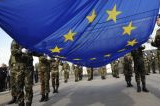 |
Petit aperçu sur la politique étrangère, de sécurité et de défense de l’Union européenne
Etudes et analyses, 08 avril, 2006
D’après la fameuse phrase prononcée au début des années 1990 par le ministre luxembourgeois des Affaires étrangères, Jacques Poos, l’UE est « un géant économique, un nain politique et un ver militaire ». Si cette définition est loin d’être tout à fait fausse, elle n’en a pas moins besoin d’une mise à jour et, surtout, d’une bonne dose de clarification.
|
 |
Chevaux de Troie ? : la nouvelle Europe à l’entrée de l’Union
Journal Francophone de Budapest
18 févr, 2004
Participant à un forum sur la sécurité transatlantique à Munich, le 3 février dernier, le secrétaire américain à la Défense, Donald Rumsfeld, persiste et signe. Il déclare toujours « ne pas regretter » sa remarque scandaleuse de janvier 2003 sur l’opposition entre une « vieille Europe » traîtresse mais sans importance (à savoir la France et l’Allemagne opposées à la guerre en Irak) et la « nouvelle Europe » fidèle et pleine de promesses (il s’agit des pays d’Europe centrale et orientale dont les gouvernements ont fait allégeance à l’Amérique belliciste).
|
 |
La défense européenne au centre des débats
Journal Francophone de Budapest
03 déc, 2003
Quelques mois après le paroxysme de la crise irakienne (du moins en ce qui concerne les affrontements transatlantiques et intra-européens qu’elle avait engendrés), en pleine phase finale de la Conférence intergouvernementale (CIG) censée décider de la Constitution européenne, et à la veille de l’adhésion des dix nouveaux membres à l’Union, le dossier de la défense européenne semble avoir atteint son heure de vérité.
|
 |
La défense européenne entre en action
Journal Francophone de Budapest
09 juil, 2003
Dans la foulée de la guerre en Irak, des débats autour de la future Constitution européenne et des préparatifs pour l’adhésion de dix nouveaux pays à l’UE, les premiers pas concrets de l’Europe de la défense sont passés presque inaperçus.
|
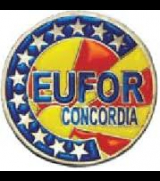 |
Au-delà du symbolisme : la première opération militaire de l'UE vue dans son contexte
Die Deutsche Gesellschaft für Auswärtige Politik
01 juil, 2003
A casual observer of Concordia – code-name for the European Union’s first-ever military operation, conducted in Macedonia – would be first impressed by the abundance of symbols in almost every aspect of the mission. Not only do the politicians’ declarations put the emphasis on the „symbolic European message” carried by the operation[1] or present it as a „significant step forward in the long process of European integration”[2], but also the EU seems determined to plant its blue flag all over the place in order to increase its visibility – a goal explicitly identified as one of the key objectives of the mission.[3]
|
 |
La guerre en Irak: vers une nouvelle logique pour la défense européenne?
Journal Francophone de Budapest
02 avril, 2003
Le constat des divisions parmi les Etats membres de l’UE au sujet de l’intervention américaine en Irak se conjugue avec la perspective d’un élargissement imminente à 10 nouveaux pays pour renforcer la prise de conscience sur l’impossibilité d’avancer ensemble dans les domaines ultrasensibles comme celui de la politique étrangère et de défense.
|
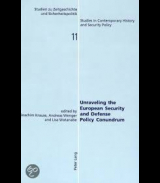 |
Un rôle militaire plus affirmé pour l’UE dans les Balkans ?
Unraveling the European Security and Defense Policy Conundrum (ed. J. Krause - A. Wenger - L. Watanabe)
01 janv, 2003
Après avoir donné un bref aperçu de la gamme d’instruments non militaires mis en œuvre par l’UE dans les Balkans, l’accent est mis sur le fait que l’absence d’une composante militaire crédible risque d’affaiblir – sinon saper – l’ensemble des autres aspects.
|
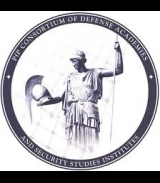 |
NATO Partnership for Peace European Security ESDI-CESDP Study Group (ESSG) meeting
NATO PfP Study Group meeting, Bern, Switzerland
21 avril, 2002
The European Security ESDI-CESDP Study Group (ESSG) has held his second 2002 meeting in Bern, Switzerland on April 21-23, 2002, as scheduled, on the invitation of the Swiss Department of Foreign Affairs. The meeting focused on "The Impact of the "Global War On Terrorism" ("GWOT") on European Security"
|
 |
En marge d un anniversaire… (dix ans après la dissolution du Pacte de Varsovie)
Journal Francophone de Budapest
01 juil, 2001
Lorsque le 1er juillet 1991, les pays membres du Pacte de Varsovie - à la fois symbole et instrument concret de l'emprise soviétique sur l'Europe centrale et orientale - signent la dissolution officielle del'organisation, ils mettent le point final à un mouvement de désintégration devenu inéluctable.
|
|
 |
Les plus lus


|



